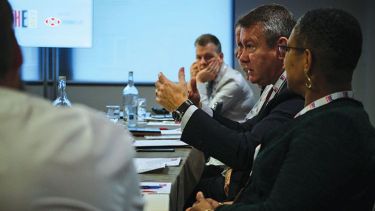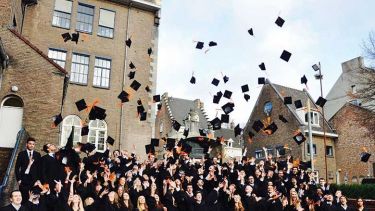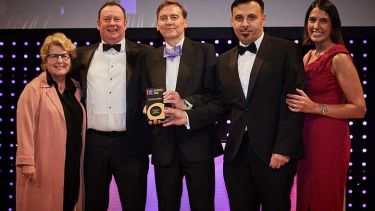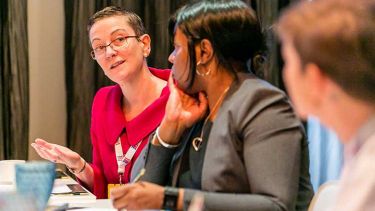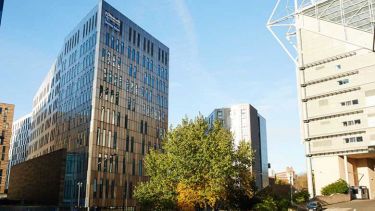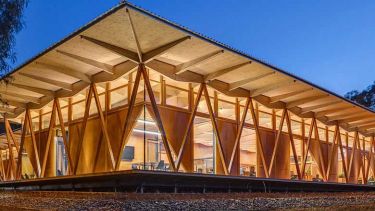
Source:
iStock

The University of Sydney partnered with HSBC UK to help improve students’ problem solving, teamwork and employability
Most students will be familiar with getting to grips with hypothetical problems: being given a dilemma and tasked with finding a solution that will grab the attention of their teachers and their peers. An initiative at the University of Sydney, by contrast, does things slightly differently.
More than 1,000 students have now been involved in Sydney’s Industry and Community Project Units (ICPU) programme, which briefs its participants on real-world industry problems and requires them to work in teams to come up with innovative solutions. Increasingly, students have the opportunity to be involved in ICPU internationally, in countries such as China, India and the UK. One such project was this summer’s “Disrupting Higher Education in the UK” – an intensive four-week course that immersed students in industry partners’ businesses, in this case HSBC UK and Accenture, in London.
The academic supervisor for the project, Melanie Hayes, explains: “We’re looking to improve students’ employability, engage them with industry partners and develop the soft skills employers are looking for, such as critical thinking and being able to work as a team.” A core element of the unit is that it brings together students from a wide range of disciplines. “Some had no experience of group work or had only done so in their own discipline, so had never got that different perspective from someone with say, an arts background, if they’re doing science.”
Seventeen students took part in the “Disrupting Higher Education” unit, first spending a week in Sydney looking through the project brief and gathering background information on the topic and country. The next two weeks were spent “on site”, investigating solutions and debating a range of issues, such as the political and economic constraints that affect the UK higher education sector. During the project’s fourth and final week, students returned to Sydney to file a 5,000-word report on their findings. “Because they’re not from the UK, they don’t come in with preconceived ideas about its education system,” says Dr Hayes.
Rita Andraos is a law and commerce student who took the part in this year’s programme. Her group’s solution focused on lifelong learning, and the fact that in the future world of work, employees will constantly need to upskill. “We spoke to graduates at HSBC and Accenture and found that these companies have the resources and the capability to keep ahead of the game when it comes to training, but small businesses don’t, so employees fall behind,” she explains. Her group came up with an idea for an aggregator that would join small businesses together to offer training programmes to staff.
Having to consider a real-world problem was stimulating for Ms Andraos and her team. “In a law or business degree you’re often asked to look at hypothetical scenarios but we were thinking about a real education issue – it’s relevant to everyone, and it’s good to be solving the sort of problem you’d talk about with your friends and family,” she says.
The collaboration embedded in the programme added to her positive experience. “Working with a multidisciplinary team meant we came up with ideas we might not have otherwise developed. There was diversity of thought, which is so important,” she explains. “I learned about how major companies work and the type of people they’re looking for, whether they want technical skills or soft skills. I definitely now want to work in London so I’m looking for secondments there.” The experience has changed her approach to her studies, too. “I had been quite stuck in my routine, but the trip has made me realise how work is changing and that I need to be more proactive and agile in the way I do things.”
Dr Hayes believes that the interdisciplinary collaboration will give students a strong grounding for when they enter the world of work. “What I love about it is how much the students learn from each other. They’re grounded in a complex problem; they’re listening to discussions and different perspectives. So when they go out to work they’ll be open to listening and understanding other people.”
“It was inspiring to see the students form new abilities outside of their core subjects, such as problem solving and teamwork – skills that will set them up well for future employment,” says Suzy Verma, HSBC UK’s head of public sector and education. “The collaboration with the University of Sydney has been a unique experience for everyone involved and is a great example of our global reach and network. It demonstrates how we can support universities and students around the globe, something I’m keen to do more of.”
Brought to you in conjunction with HSBC. Find out more about HSBC’s education team.



